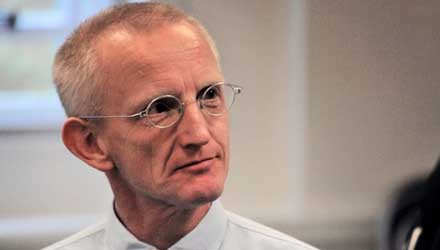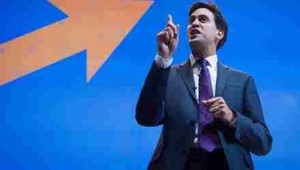Transforming the Labour Party remains a strategic necessity. Stan Keable, secretary of Labour Party Marxists, makes the case for genuine democracy
Talk about the demise of the Labour Party’s trade union link is greatly exaggerated. Those on the left who stand aloof from the party because its leadership is rightwing, or campaign for trade unions to disaffiliate, are running away from the fight for socialist politics within Labour and merely leaving the right in control. The deficiencies in the party are as old as the party itself
Lord Sainsbury’s Blairite protégés promoted by the Progress organisation will be disappointed that their political careers will continue to be tainted by association with the collective decision-making so essential to working class democracy. Stephen Bush, a “contributing editor to Progress”, describes the link as “a relationship that should never have started in the first place” and writes of “the party founders’ historic error in building a relationship with trade unions and not trade unionists”.1
Peter Taaffe’s Socialist Party in England and Wales – the ex-Militant Tendency majority who ran away from the fight to win the Labour Party to socialism – is unable to sustain its self-serving line that Labour has already been transformed into a purely bourgeois party, just because they are out of it. Labour’s death as any kind of workers’ party is now postponed for a further five years: “… if implemented, the Collins review will mean the destruction of the last remnants of the trade unions’ organised presence within the Labour Party … this will conclude the already advanced transformation of Labour into one more party of big business.”2 So the struggle in the party is not over? A pity you have given up the ghost, comrades.
After implementation of the Collins proposals, the unions will retain their 12 NEC seats and their 50% share of conference votes. Labour will remain a “bourgeois workers’ party” (Lenin’s famous description) – a product of the workers’ movement, but dominated by parliamentary leaders with pro-capitalist politics. Its bourgeois pole is dominant and its working class pole is subordinate, but that is nothing new. The trade union bureaucrats can sometimes prevent changes that do not suit them, but it is the Parliamentary Labour Party which rules, and the ‘leader’ who rules the PLP – and that is nothing new either. The PLP can safely ignore conference decisions – but that anti- democratic Labour ‘principle’ was formally endorsed as long ago as the 1907 party conference.
The proposed ‘democratisation’ of the party will leave the MPs, not the party, choosing candidates for leader and deputy leader, before the rest of us get to vote for a candidate not of our choice – again that is nothing new. The extensive patronage powers of the party leader to give away jobs is not mentioned by Collins, so the Führerprinzip will continue its corrupting influence: MPs’ loyalty goes to the leader, not the party – once more nothing new.
In short, there was no golden age of ‘real Labour’. Labourism was hobbled by capitalist politics from the beginning – Liberal Party politics, to be precise – along with a trade union movement dominated by a self-serving, privileged bureaucracy.3 However, this unfortunate situation is not inevitable.
The fight to democratise and rebuild our unions and our party, and transform them into effective instruments of working class struggle, is inseparable from the fight to win the active support of the working class majority for the socialist political programme. Without this, capitalism cannot be superseded positively. Those who claim that the party cannot possibly be transformed might just as well argue that those other mass organisations produced by our class, the trade unions, cannot be transformed, or that the working class cannot be won for socialism.
The party has been saddled with rightwing, pro-capitalist leaders, whether trade union bureaucrats or professional, careerist politicians, since the foundation of the original Labour Representation Committee in 1900. But there is no good reason why this must be so. It is certainly not because the right wing has such a good political programme for our class. Every Labour government to date has demoralised and weakened the workers’ movement and paved the way for the return of a Tory administration.
It is not that the Labour right deserves to win, but the Labour left deserves to lose – so long as it prioritises short-term vote-winning and the return of a Labour government above the long-term struggle to win active majority support for working class socialism. Yes, we need to elect socialist MPs, to act as tribunes of the people, as the voice of those in struggle. But we need an Ed Miliband government attempting to establish a “responsible capitalism” like a hole in the head.
If and when the left becomes strong in the party, the capitalist media can be relied upon to pull out all the stops to make Labour ’unelectable’, and the careerists of the Labour right can be expected to jump ship, as they did in the 1980s. Good riddance! Better still, we should drive out the pro-capitalist politicians as class enemies within our movement, starting with those who collaborate with the present Tory-led coalition government.
Socialist strategy towards Labour should not be entryism, seeking to split the left away at an opportune moment. That would leave the party in the hands of the right. No, our aim must be to win the party for working class liberation, for socialist politics, for Marxism, and kick out the pro- capitalist right. Rebuilding and re-educating our movement and our class from its present politically weak condition must be done in opposition to a capitalist government of any stripe, not in servile loyalty to ‘our’ capitalist government.
Rubber stamp
Lord Ray Collins’s final report, endorsed by Labour’s national executive committee on February 4, will be rubber-stamped by the March 1 two-hour special ‘conference’ with the backing of delegates representing the three largest affiliated unions: Unite, GMB and Unison.4 No amendments will be allowed. Only one vote will be taken: ‘yes’ or ‘no’.
Months of behind-the-scenes negotiations between top trade union bureaucrats, on one side, and Ed Miliband and his apparatchiks and would-be capitalist ministers, on the other, reportedly described by an unnamed shadow cabinet member as a “rollercoaster”, have predictably produced a rotten compromise which reflects the present balance of forces.5 The outcome leaves the trade union link intact, but weakened, and is correctly characterised by Socialist Appeal – the ex-Militant Tendency minority who opted to stay in the party – as a mere “rejigging of internal party procedures”.6
Nevertheless, the Collins proposals, Ed Miliband claims, are “the biggest changes to who can become involved in the Labour Party since probably its formation”.7 So what are these changes?
Firstly, the three-part electoral college for leader and deputy leader elections – one third each for CLPs, affiliates and PLP – is abolished, so that only individuals can vote, and all votes count equally, whether cast by an MP, a party member, an affiliated supporter or a registered supporter (see below). No longer will some individuals have multiple votes – one as a party member, another as a trade union levy-payer, a third as a member of an affiliated socialist society, for example. But this desperate attempt to appease the rightwing press and appear democratic comes with an old formula. The PLP gets to choose the candidates. So the ‘one member, one vote’ election in the party is preceded by MPs voting to select a short list of candidates.
In the few days before the February 4 NEC meeting, the threshold percentage of MPs required to get nominated was knocked down by the trade union side from Collins’s original 25% to 20% – which Miliband announced in his January 31 Guardian interview – and then to the 15% endorsed by the NEC. So some hard bargaining took place. But it produced a rotten compromise, which leaves the PLP in effective charge of the party – a far cry from the democracy we need.
Secondly, when the five-year transition period is complete, affiliation fees will only be accepted by the party from individual levy- payers who have opted in. At present, all affiliated levy-payers get a vote in party leader and deputy leader elections. From the end of 2014, onlythose levy-payers will be eligible to vote who have chosen to become “affiliated supporters” (at no extra cost), confirmed their allegiance to (unspecified) “Labour values” and linked up with a local party organisation in a constituency where they are on the electoral register. Those who “opt in” but do not become affiliated supporters will be disenfranchised.
Alongside the full party member and the affiliated supporter, there will be a new, or rather an amended, category of “registered supporter”. They too must affirm their “Labour values”, appear on the electoral register and be linked to their local CLP. They have no other rights than voting in a leader and deputy leader election, and in a “closed primary”, should one be organised. Leader elections may be few and far between, and the only closed primary planned so far is to select Labour’s candidate for London mayor in 2015. If I read Collins correctly, registered supporters must sign up afresh and pay a £3 admin fee each time they wish to get a vote in a party election. Whether his ‘bait’ of occasional voting rights will draw new blood towards the party, as Miliband hopes, remains very doubtful. The previous category of “supporters”, who paid no fee, but were promised voting rights if their number rose to 50,000, only reached 20,000 and has now been junked.
Miliband had told The Guardian that he “would look at the structure of conference in the future”, but the offending words about reviewing the number of trade union NEC seats and the percentage of conference vote had been removed from the final document.7
Unite is linking its regional political committees and political activists with the largest workplace branches to encourage its members to tick the necessary boxes to become affiliated supporters and move on from that to full party membership. The current Labour membership is about 186,000, equal to no more than 13% of Unite’s.
All this means that if trade unionists get busy, affiliated supporters and new recruits could transform the largely hollowed out Constituency Labour Parties and help swing the party radically to the left.
Notes
1. ‘Harry Potter and the question of party reform’, February 4: www.progressonline.org. uk/2014/02/04/harry-potter-and-the-question-of- party-reform.
2. www.socialistparty.org.uk/issue/797/18123.
3. Keir Hardie’s 1892 election manifesto, when he was elected to the Commons for the first time as MP for South West Ham, declared: “I have all my life given an independent support to the Liberal Party … I am in agreement with the present programme of the Liberal Party.”
4. http://s.bsd.net/labouruk/default/page/file/ a84a677f479406989c_pom6b5w60.pdf.
5. The Guardian February 4.
6. Socialist Appeal February 5.
7. Interview in The Guardian January 31.







